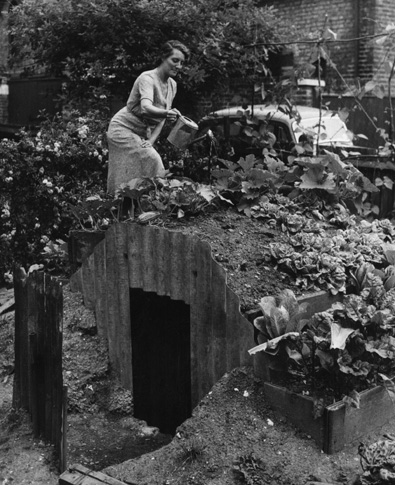Although the effects of war permeate society as a whole, civilians and combatants have very different experiences of it. In general, the most common problems civilians can face in wartime are grappling with a loved one being deployed to war or being displaced from their homes due to the outcome of war; most civilians do not directly encounter the threat of death on a daily basis as soldiers do. However, my parents’ retelling of my grandparents’ experiences in World War II (1939-1945) revealed that they were part of the exception to this generalization. My mom’s parents lived in the Philippines when it was occupied by the Japanese (See “Piecing Together the Past” for a description of their wartime experience). My dad’s parents lived in Germany when it was being bombed by the Allies. Hearing about World War II from different perspectives marveled me about the countless subjective experiences of war.
In 1941, Nazi forces invaded Ukraine and implemented their “ethnic cleansing” policy by killing civilians who did not look Aryan (i.e. having blonde hair and blue eyes). Although Jews were the primary victims of the Holocaust during Adolf Hitler’s reign, many non-Jews, such as Ukrainians, also died or were forced to become slave laborers. WWII finally ended in 1945 when the Axis powers surrendered to the Allied powers.
My dad talked about how his mother, who was originally from Ukraine, experienced life after WWII in Germany; he admits that he does not know a lot about her experiences during the war because she is so traumatized that she is still unable to talk about it. After WWII, the casualties in Ukraine were so devastating that my grandmother and her father fled to Germany. Eventually, she found a job milking cows for a wealthy farmer outside of Munich. During this time, the United States and Britain continued bombing Germany. The farmer my grandmother worked for generously offered his basement as a bomb shelter for war survivors. My grandmother and several others accepted his offer and lived in his basement for approximately a year. The farmer ensured that everyone had ample food and protection during their stay. Although my grandmother never witnessed any violence firsthand during this time, she heard the planes flying overhead and dropping bombs.

The stories my parents told me do not necessarily fit Tim O’Brien’s definition of a “true” war story in “How to Tell a True War Story.” O’Brien characterizes these stories as lacking a moral, failing to give the reader or listener a sense of closure, and seeming far-fetched. My parents’ stories seemed to have a moral and gave me a sense of closure. For instance, these stories illustrated how quick wits could save people’s lives during wartime and confirmed that there were altruistic individuals amidst war. In addition to that, these stories do not seem implausible in the context of war. In such dangerous times, people had to do whatever they possibly could to stay alive, even if it meant pretending to be dead amongst decomposing bodies or accepting an employer’s offer of shelter in his basement. Perhaps I only felt a sense of resolution from these stories because I know that things ended well. Or perhaps a “true” war story has a different definition for civilians who live through a war than it does for soldiers who fight on the battlefield; after all, although inhabitants of war-torn countries were undoubtedly traumatized by their experiences, they probably did not have to take another person’s life.
Hearing the stories of my grandparents helped me understand the complexity of war and how it truly affects the nation as a whole. Although my grandparents were noncombatants, they still experienced the terrors of war firsthand.
